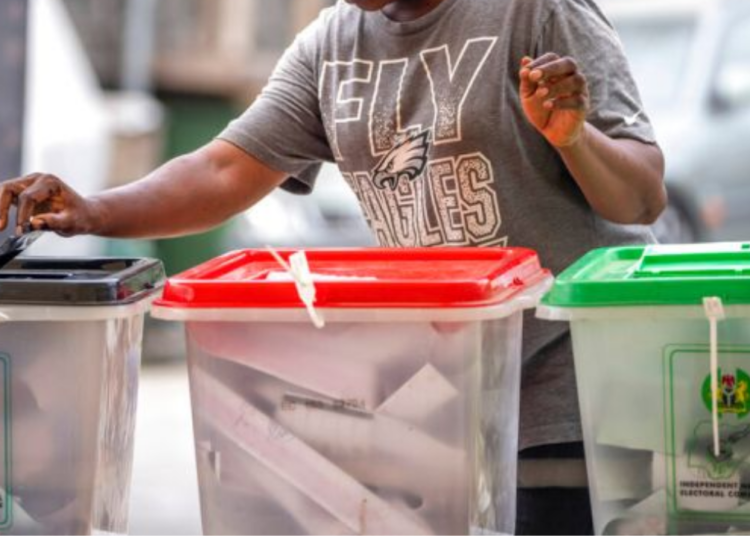The buildup to the three off-cycle governorship election involving Bayelsa, Imo, Kogi states has been anything but pleasant given the altercation and reported violence that have been trending so far. It is important to point out to the political actors and their cohorts that the preparation ought to be for the emergence of candidates who will guarantee good governance.
While we admit that what is going on in those areas is not new, it’s worrisome that the political class always disappoint by their conduct when it is election period.
Even more disheartening is the fact that the scenario is still all about inciting rhetoric, deploying thugs and seeking to compromise the system. The unfortunate perception is that political actors are set to outdo each other in acts of mischief and political chicanery, disregarding the long and short term implications of their actions.
In the election holding next month, a total of 5.41 million eligible voters will head to the polling units to cast their ballots. The breakdown shows 1,056,862 registered voters in Bayelsa State; 2,419,922 in Imo State; and 1,932,654 in Kogi State. The Independent Electoral Commission (INEC) has cleared 18 candidates in Kogi State, 17 in Imo, and 16 in Bayelsa State. This off-cycle governorship poll will be the first to be conducted under the President Bola Tinubu administration.
Not surprisingly, these are states with a history of intense political violence and election-related killings. And so far, nothing seems to have changed with regards to the way the political actors are carrying on in those states.
Before now, we recall that INEC had alerted the nation about the challenges ahead pointing out that the level of violence may hamper the smooth conduct of the poll. The electoral body is not alone in this state of apprehension as a lot of people, including those not directly involved in the politicking, are bothered that the political class is not disciplined enough to rein in their expectations.
Much more disturbing, in our view, is that not even the peace accords which they ostensibly signed seem to bring their emotions under control. There appears to be a numbness among this class to the repercussions of their actions in the same clime they intend to preside over if or when they are elected.
Nevertheless, we urge INEC to be firm in carrying out its duties. We believe that the commission must have learnt a few lessons from the recent general election not to give in to the antics of inordinately ambitious politicians.
It may not be unlikely that what is going on is a ploy by the politically-exposed persons to seek to compromise willing elements within the commission to undermine the process in their favour. It is reassuring, in our opinion, that INEC’s staff suspected to have compromised in their earlier duties have been penalised. This is a culture that should be encouraged.
Similarly, security agencies must be able to live above board. This demand seems to be a very tall order considering the nature and complexion of the system. However, we give them the benefit of the doubt in the hope that the worst we fear may not come to pass.
It is a given that providing security on election day is key. The electorate should be confident to come out in their numbers to vote and defend their vote. INEC staff should also be able to effectively function without any fear of harassment.
The ugly violent incidents that played out during the last general election ought to, by now, serve as a reminder that they have to be seen to be on ground and also in charge.
It’s a good thing that the National Security Adviser (NSA), Mallam Nuhu Ribadu, has given the assurance that there won’t be interference in the forthcoming governorship election.
Ultimately, the desperation to occupy public office summarises the unpleasant tale of our country. With a political class whose mindset is steadily fixed on how to access the public purse, it’s little wonder that elections are like war, with actors set on pillaging the system as spoils of conquest.
Clearly, in our considered opinion, the political party system, an essential institution that ought to galvanise ideological framework for quality governance, has long gone to sleep, having yielded its soul to political buccaneers, whose sole aim is power grab and nothing more.
It is immensely troubling that political parties no longer promote the core ideal of political quest which is service. Party tickets are now reserved for the highest bidders.
Regardless, we still reserve some modicum of confidence in the political class in the hope that they will pause and avert the danger ahead. Otherwise, not only is it not sustainable, it is, in a lot of ways, the harbinger of avoidable chaos.





